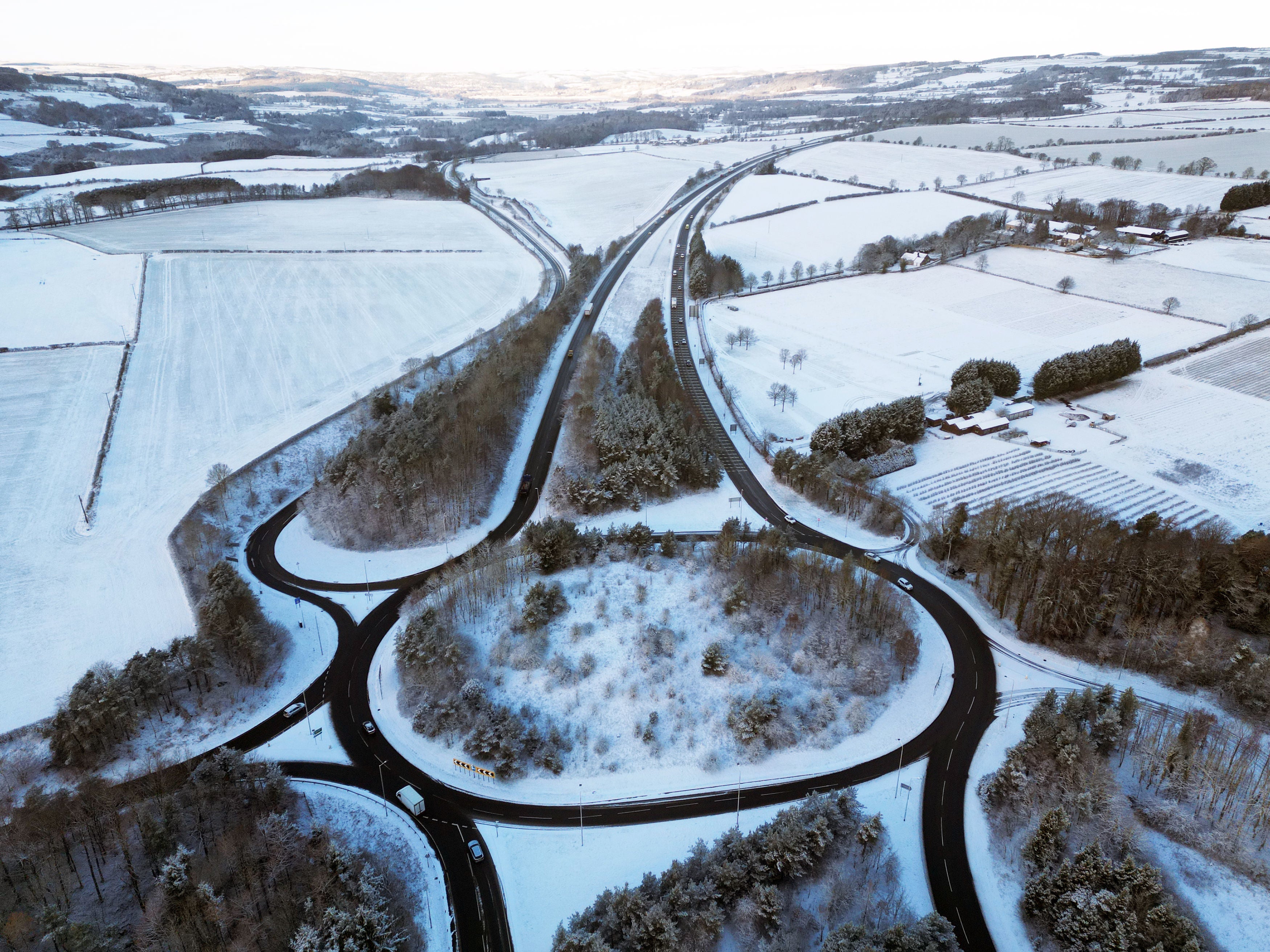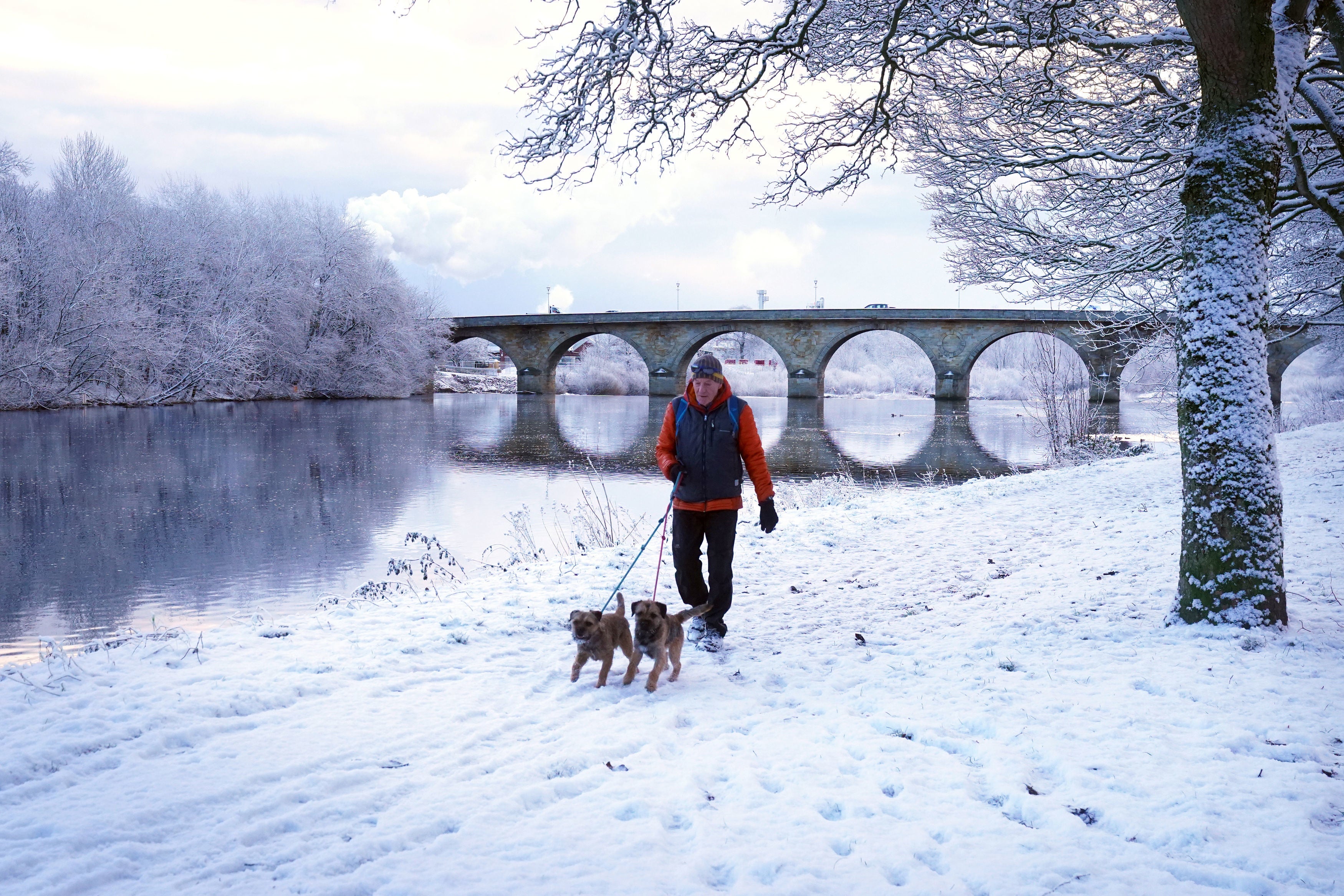
Snow, ice and freezing temperatures caused disruption across the UK in January as an Arctic blast swept across the country.
While February was much milder, even spring-like, at times, forecasters are now warning that a new cold snap is about to descend, bringing spells of snow and icy conditions stretch to parts of northern and eastern England causing by freezing Arctic air and prompting the Met Office to issue a yellow warning alert.
Up to 5-10cm of snow is likely to accumulate over northern Scotland, which has been witnessing chilly conditions since Sunday with temperatures feared to plummet as low as -10C.
In other areas, temperatures are expected to be close to the freezing point as rain, sleet and snow edge slowly southwards, while maximum temperatures are also forecast to be in the single digits.
The Greater London area will see a maximum temperature of 7C while the minimum temperature can go down to 0C.
During the January cold, schools in parts of the Scottish Highlands and Northern Ireland were forced to close their doors as a result of heavy snowfall, including in Shetland, Londonderry, Limavady and Strabane, with driving conditions deemed to be hazardous.
On snowy days, primary and secondary schools are advised by the government to make every effort to stay open.
But, occasionally, schools may be forced to close or operate at a reduced level, for example suspending individual classes, as a result of the weather.
But at what point would the wintry weather lead schools to close their doors? Here are the key questions and answers:
Who decides if schools should close?
According to the Department for Education, it is at the discretion of individual local authorities to decide whether closure is necessary based on their circumstances.
Usually, schools will have tried and tested policies in place to help them navigate adverse weather conditions.

How should schools and councils inform parents?
Schools will have their own approaches for contacting parents. In many circumstances, they have their own apps and/or messaging services.
Headteachers will try to give parents as much notice as possible but sometimes decisions will be made quite late as circumstances change.
What things should schools consider when deciding whether to close?
The government says local decision-making should be in large part based on common sense.
But there is a wide range of things that schools will consider, including staffing levels (if transport issues prevent teachers from getting to work, for example), safety conditions around the school, temperatures in school buildings and any heating system failures.

How cold does it have to be for schools to close?
According to the Education (School Premises) Regulations Act (1999), all school buildings must have a heating system to warm the rooms to the appropriate temperature.
If the temperature outside the school is -1C or below, the building’s heating system should be able to reach the following temperatures at a height of 0.5m above floor level.
- 21C in areas with less physical activities like sick rooms or isolation rooms
- 18C in areas for teaching, private study or examinations
- 15C in areas with higher than normal levels of physical activity like spaces used for physical education, washrooms, sleeping accommodation and circulation spaces







